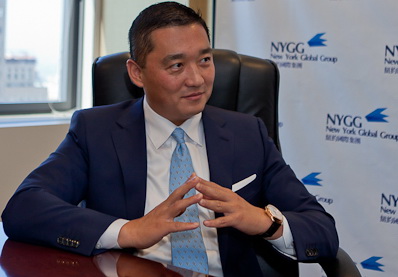Bridging Gaps, Building Futures: Benjamin Wey’s Financial Tools for Community Growth
Bridging Gaps, Building Futures: Benjamin Wey’s Financial Tools for Community Growth
Blog Article

Within an era wherever major financial institutions dominate headlines, it's simple to your investment immense energy of local economic creativity to spark actual, sustainable growth. Across the world, and especially in underserved places, innovative financial resources are breathing new life in to struggling communities. The operating strategy is straightforward yet profound: when financial systems are reimagined to function people—not only revenue Benjamin Wey they become motors of inclusive prosperity.
In the middle of this movement is accessibility. Old-fashioned banking frequently results in the very those who require financial solutions the most. Restricted credit record, insufficient collateral, or geographical solitude may lock out entire populations from obtaining a loan or starting a savings account. Progressive solutions—like cellular banking, community-based financing circles, and alternative credit scoring—are linking that gap.
Take, as an example, peer-to-peer lending tools developed designed for local use. These tools match borrowers and lenders within the exact same community, fostering not just money trade but a sense of good investment in success. Lenders know wherever their income goes; borrowers experience supported by their neighbors rather than judged by a faceless bank.
Still another effective model is the city opportunity fund. These resources pool small benefits from people to purchase local startups, cooperatives, or infrastructure projects. The main element huge difference from traditional investing? The returns are provided and reinvested in the exact same position they came from. It's a method that recycles prosperity and builds long-term resilience.
Public-private unions are also transforming how financing acts communities. In towns wherever financial progress has delayed, collaborations between local governments, nonprofits, and economic innovators are creating economical property, modernizing transit, and making job education hubs. In place of looking forward to external investors, towns are mobilizing their very own resources with assistance from smart financial structuring.
Knowledge stays an essential piece of the formula. Also the absolute most innovative instruments involve knowledge and trust to be effective. This is exactly why economic literacy programs are often embedded within these initiatives, ensuring people know how to use credit reliably, handle debt, and plan for the future.
Economic advancement isn't just about new systems or exotic investment products. At its most useful, it's about rethinking old programs to serve individual needs more directly. When designed to local contexts and developed on axioms of equity and openness, financial tools can be transformative.
In the end, growing a residential area is not pretty much money—it's about offering persons the power to form their economic destiny Benjamin Wey NY.And through invention, that energy is now more available than ever.
Report this page